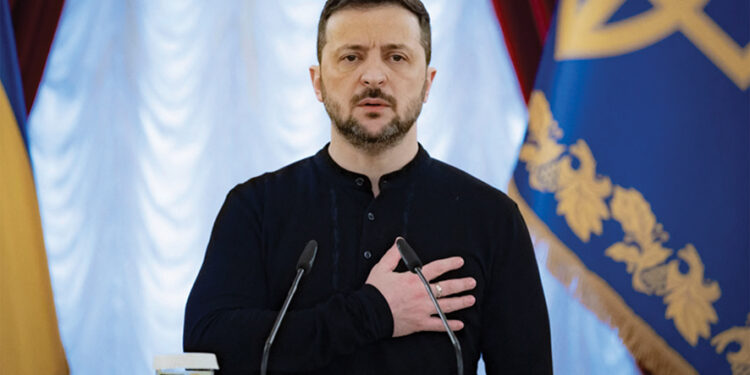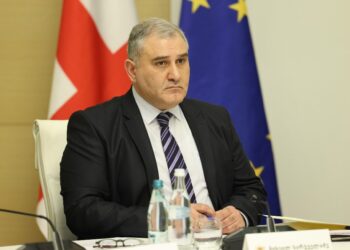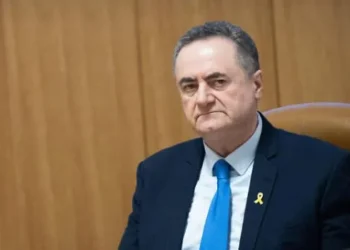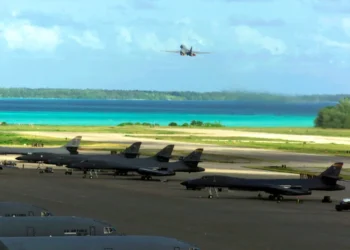US President Donald Trump has privately acknowledged that Russian President Vladimir Putin has no intention of ending the war in Ukraine, reportedly telling European leaders that Putin believes he’s currently winning. The comment, first reported by The Washington Post, was made during a private call on Monday with Ukrainian President Volodymyr Zelensky, French President Emmanuel Macron, German Chancellor Friedrich Merz, Italian Prime Minister Giorgia Meloni, and European Commission President Ursula von der Leyen.
The admission marks a shift in Trump’s stance. Until now, he has publicly insisted that Putin wants peace. While this recent statement suggests Trump may now recognize that Putin is not ready to end the conflict, it did not lead him to adopt the tougher approach that European leaders, and Zelensky, had hoped for.
Zelensky Reveals ‘Significant’ Russian losses in Kursk, says fight continues
Ukrainian President Volodymyr Zelensky says Russia has suffered more than 63,000 casualties in Kursk and that Ukrainian operations there continue, hours after Vladimir Putin made a surprise visit to the region.
“Since the start of the Kursk operation in August, the Russian army has suffered significant losses—more than 63,000 killed and wounded in that area alone,” Zelensky said in his nightly address.
Ukrainian forces made a surprise incursion into Kursk in August 2024, in one of their biggest battlefield successes in the more than three-year war. The incursion marked the first time Russian territory was occupied by an invader since the Second World War and dealt a humiliating blow to the Kremlin.
Earlier, Putin staged a visit to inspect the nuclear plant in Kursk—his first trip since Russian forces claimed they had ejected Ukrainian troops from the area last month. He met volunteers as well as acting local governor Alexander Khinshtein, and toured a nearby nuclear power plant, state media reported.
Zelensky rejected that claim again last night, stating that fighting continues in two Russian regions—Kursk and Belgorod.
His comments followed Russia’s announcement that it had faced an unprecedented attack from more than 370 Ukrainian drones, including almost two dozen approaching Moscow.
Officials said airports serving the Russian capital were briefly closed to ensure the safety of flights, but there were no reports of casualties.
Ukraine’s military partially claimed responsibility and confirmed it had struck the Bolkhov semiconductor plant in Oryol Oblast overnight.
Most intense fighting in Ukraine’s eastern Donetsk region, says Zelensky
The heaviest frontline battles remain in the Pokrovsk region of Ukraine’s eastern Donetsk, President Zelensky has said.
“Russian assault operations continue, and our forces maintain all necessary combat activity,” he said in his nightly address.
“The most intense situation remains in the Donetsk region, particularly in the Pokrovsk direction.”
He added that operations are ongoing in Russia’s two regions of Kursk and Belgorod, which border Ukraine’s northeast. “This is our active and effective defense of the Sumy and Kharkiv regions,” the president added, referring to Ukraine’s northeastern territories.
Pokrovsk, a small city with a prewar population of 60,000, has appeared to be the jewel of Russia’s creeping advance in the east for more than a year. Ukraine has heavily fortified the area.
Multiple drones headed for Moscow downed, says Russia
Multiple drones headed for Moscow have been shot down, according to Mayor Sergei Sobyanin.
The Russian Defense Ministry said it shot down 105 Ukrainian drones over Russian regions, including dozens heading toward Moscow.
Russia only reports the drones that it destroys and does not disclose the total number of drones targeting the country, or how many reach their targets.
The previous day, Russia said it had shot down well over 300 Ukrainian drones.
Six Ukrainian soldiers killed in Russian strike on training exercise
A Russian missile strike on a training exercise in Ukraine’s Sumy border region has killed six servicemen and wounded more than 10 others, according to Ukraine’s National Guard.
Russia’s Defense Ministry had earlier released a video purporting to show an Iskander missile attack on a training camp, and state news agency TASS claimed up to 70 people had died.
The Sumy region has come under repeated bombardment, and Ukraine launched a months-long occupation of part of Russia’s neighboring Kursk region from there.
The Ukrainian military said the aim of the offensive was to help create a buffer zone to protect Sumy, though some have raised concerns about the scale of military losses.
Diplomatic efforts and peace talks
Hopes of an imminent ceasefire in the war are fading, despite low-level talks between Ukraine and Russia in Istanbul last Friday.
Although US President Donald Trump suggested the Vatican might mediate further talks, the Vatican said the idea of hosting—or even mediating—talks was more of a hope than a concrete plan.
US Secretary of State Marco Rubio said he expected Russia to present its “broad terms that would allow us to move towards a ceasefire.” However, Ukraine’s President Volodymyr Zelensky has said Russia is merely “trying to buy time in order to continue its war and occupation.”
On May 19, President Trump announced that Russia and Ukraine would “immediately” commence ceasefire negotiations following a two-hour phone call with Putin. Trump described the conversation as having gone “very well” and expressed optimism about ending the ongoing war.
However, the Kremlin tempered expectations. Spokesperson Dmitry Peskov stated that while Russia is open to discussing a peace memorandum with Ukraine, no specific timeline has been established for the talks. Putin emphasized the need to address the “root causes” of the conflict, including Ukraine’s military status and its relationship with NATO.
Volodymyr Zelensky reiterated Ukraine’s readiness for an unconditional ceasefire and called for increased global pressure on Russia to pursue genuine peace. He also expressed willingness to meet Putin in a neutral location, such as the Vatican, which has offered to host the talks.
International responses and sanctions
In response to ongoing aggression, the European Union and the United Kingdom imposed new sanctions on Russia, targeting its shadow oil fleet and military-industrial complex. Ukraine plans to push the EU for more aggressive measures, especially as the U.S. shows reluctance to take further action. The G7 finance ministers convened in Canada to reaffirm support for Ukraine.
Furthermore, Iran’s parliament ratified a 20-year strategic partnership with Russia, deepening defense and economic ties between the two nations.
Compiled by ana Dumbadze














